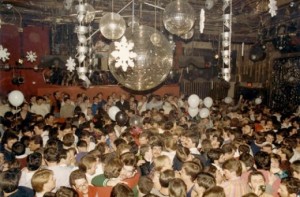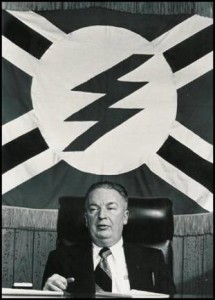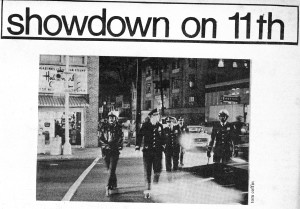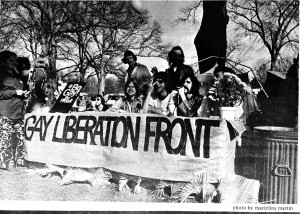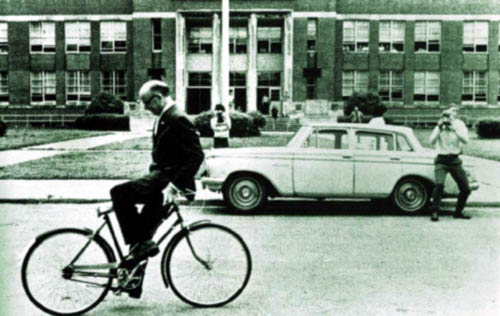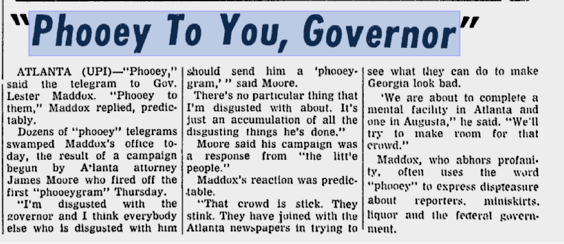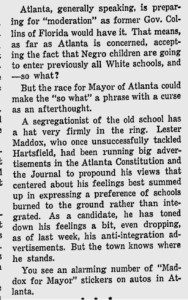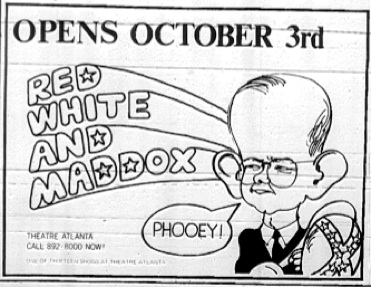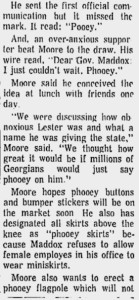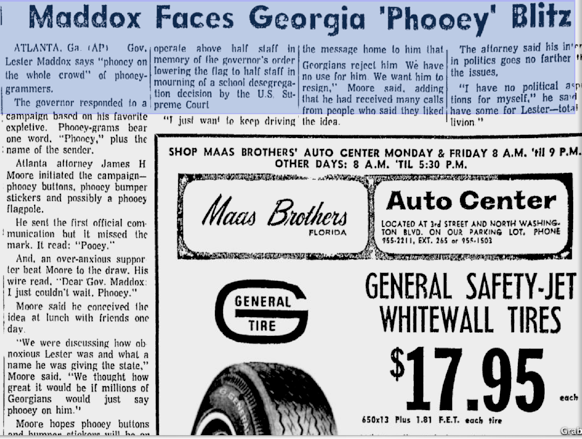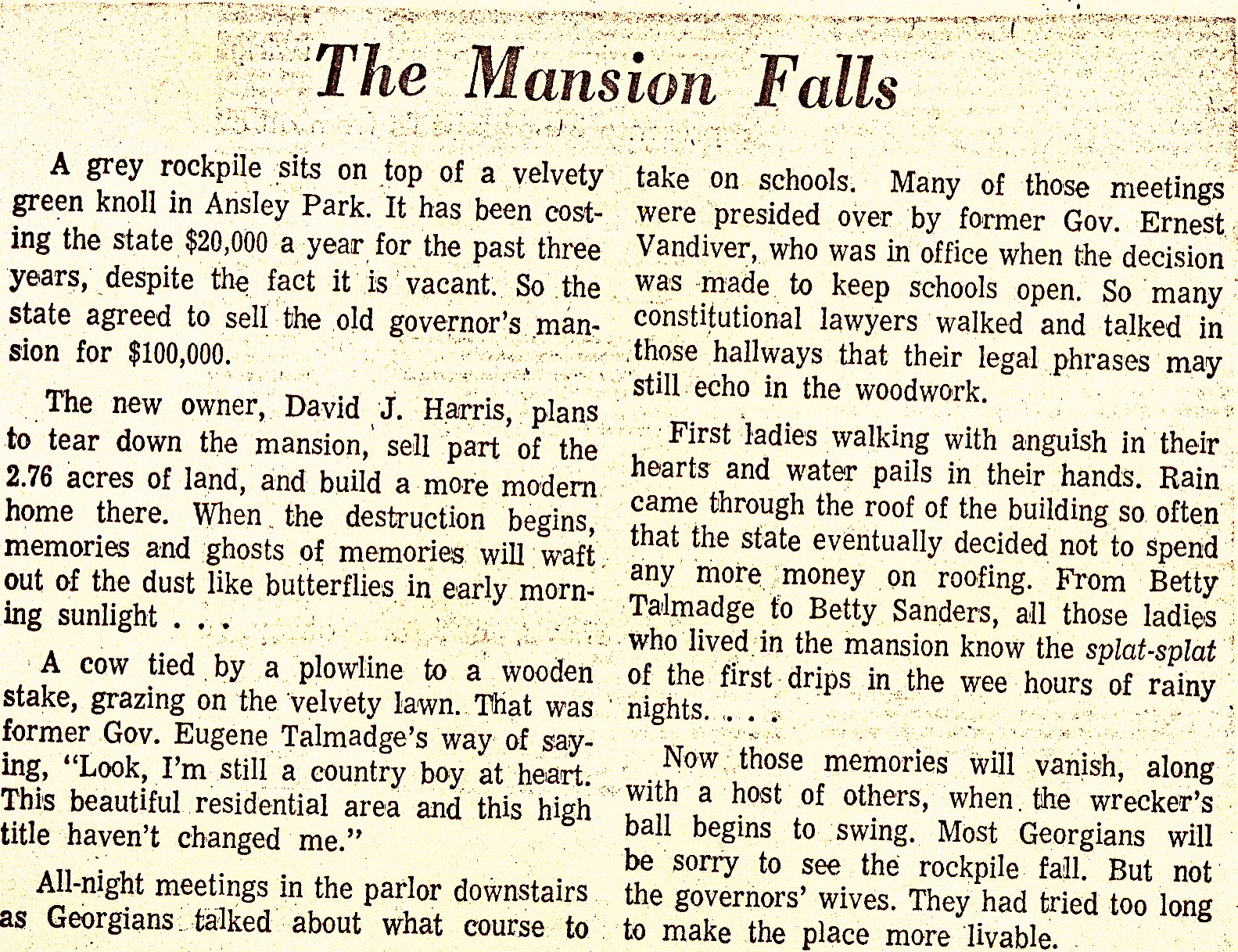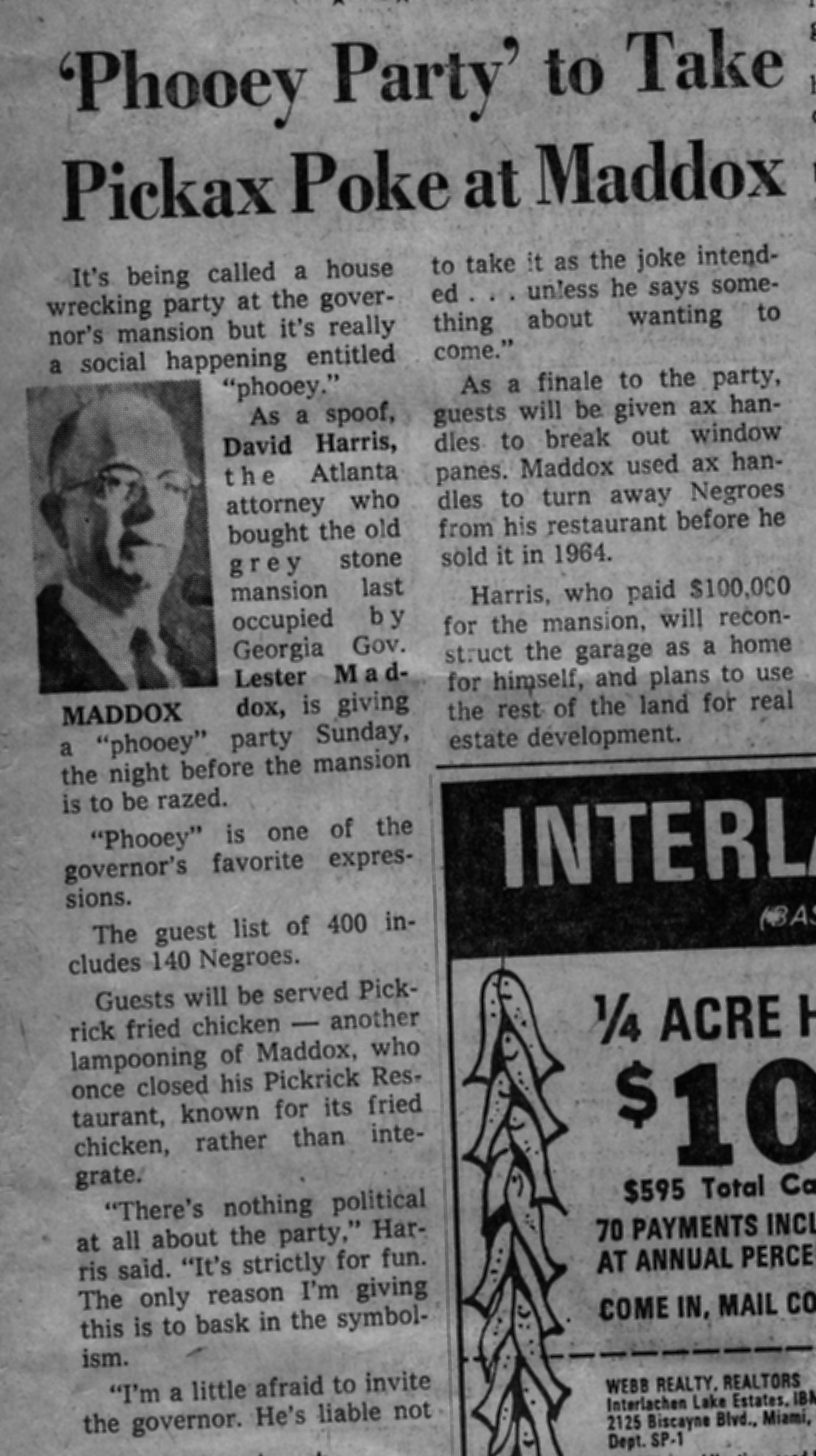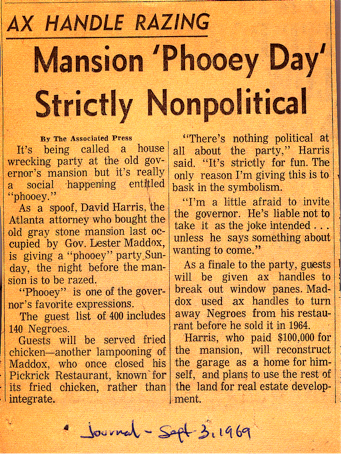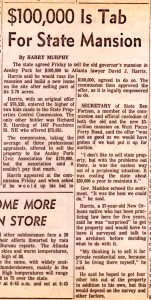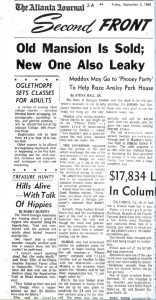The Great Speckled Bird March 30, 1970 Vol 3 #13 pg 14
War on Rock
Santana and the Allman Brothers Band flew right into a hornet’s nest last week when they showed up to play at the Municipal Auditorium: there was a picket line of striking city employees there to prevent scabs from filling their jobs.
The word from California is that Santana is a pretty hip Rock group and not the kind to cross a picket line in support of a city administration that had fired the strikers and alerted that National Guard to deal with them. And this year, unlike the 1968 garbage strike when longhairs scabbed in the workers’ jobs, it was becoming clear at the time of the scheduled concert that the hip community was lining up in complete support of the strikers against the city. The Mid-Town Alliance had voted unanimously to support the strikers. The Bird was behind them, and people from The Laundromat, Women’s Liberation and other groups were planning to be on the picket line, not inside the concert. The Allman Brothers dig Atlanta and the music audience here—they didn’t want to cross the picket line either, although their management obviously didn’t give a shit about any black workers’ struggle. The Insect Trust, also on the program, are a fairly “political” group from Memphis (via Hoboken, New Jersey, recently), and they stated early in the day that they wouldn’t play as long as the picket line was up.
In order to deal with this political/cultural dilemma the fairest way possible, Santana met directly with representatives of the strikers. The city workers didn’t want to keep the concert from taking place, and they wanted the support of the hip community; at the same time, Santana didn’t want to run roughshod over the very real efforts of the strikers to maintain a solid front against the city. So Santana offered to make a financial contribution to the workers’ cause and give some time at the concert for a union speaker; in return, the strikers would remove their picket line during the time of the concert. Everything was delivered, but the city didn’t dig what went down—not at all.
Atlanta has an 11:30 “curfew” and Municipal Auditorium concerts have to take that absurdity into account. The Santana concert started on time, but the sound system, supposedly a special “Festival Group” system promised “especially for this performance,” was responsible for an incredible number of hassles.
The sound was terrible for The Insect Trust, and something terrible seems to have happened to the group itself, too. We got a chance to hear them last summer at the Memphis Blues Festival, and they were fantastic, one of the best things we had heard. They got it all in—folk, rock, jazz, blues, some of the new things black musicians are doing, and somehow it all hung together in an exciting way. Nancy Jeffries, the vocalist, we dug a lot, but Thursday night she was lousy. None of it came off, but again. it sounded as if at least a large part of the trouble was in the mikes and amps-or maybe that’s what happens to a good group when they are “discovered” by Bill Graham.
The Allman Brothers Band were great though—it’s hard to describe what happens between Atlanta and the Allman Brothers, but their music brought the house down. It’s terrific to have them back here. but it did seem strange hearing them in the setting of the Municipal Auditorium for up to six bucks instead of for free in Piedmont Park- seems like “success” should work the other way around. We hope to see them back in the park this summer.
A lot of shit was coming down backstage while freaks were tossing a frisbee from balcony to balcony in the intermission before Santana. Roy Eirod, the auditorium manager, didn’t take too kindly to the idea of a striker going on stage, and so pitched a fit. Santana said they wouldn’t play if the agreement weren’t lived up to, and Aftermath Productions had decided that they would support Santana’s position. Finally, Ed Shane came out and announced the speaker who was accompanied, with good reason, by four bodyguards.Most of us dug what he was saying, but a few freaks with warped priorities just had to stick in some booing. The speaker, John Releford, wasn’t fazed at all: “Now, you folks can agitate all you want,” he said, “but I’m gonna stay up here for just a while longer and rap some more!” This got him an ovation, and after a couple of short remarks about freaks not scabbing and freaks and strikers supporting each other, he turned the stage over to Santana.
It would be hard to imagine anyone who doesn’t dig Santana. They did some great stuff Thursday night— like the Allman Bros., mostly from their record—but after only a half hour of music, the mikes and amps suddenly cut off. Eirod, backstage, had flipped because of the union speaker and envoked the curfew bullshit. Shane was out front trying to cool everybody off, but in the wings there was some pretty unpleasant hassling centered around the power switch. The Santana people were furious at the city.
Finally, Shane, who had been playing mostly a “mealy mouth role (he had wised up considerably by the time of the scheduled Spirit concert on Sunday) finally turned to the drummers and said, “What happens now is up to Santana!” Like an explosion, the drummers began to play without mikes and amplification, and a freaked out audience burst into shouts and applause and streamed past the befuddled cops to rush the stage (several kids had been busted during the evening for such offenses as “blocking the aisles,” etc., and at one point, the cops even confiscated the frisbee). You can bet your sweet life the city personnel were quaking in their shoes about what to do—imagine a lot of city cops against the combined forces of freaks, musicians and striking workers. A lot of hands got near the power switch, but miraculously, the electricity came back on for one more ferocious, driving number.
When it was all over, Shane came back to the mike to smooth things over but Santana organist Greg Rollie grabbed the mike and shouted, “We’re sorry about all the trouble—next time we play for you, we’re gonna play for two hours, and we won’t care what the rules say: Right on!
The next day, the city of Atlanta pulled another of its tricks in what Steve Cole of Discovery, Inc. has called a “war on Rock & Roll” waged by Atlanta for a long, long time: it cancelled four concerts already scheduled in the Municipal Auditorium by Aftermath Productions (including Judy Collins and Jethro Tull), and threatened never to contract with that agency again.
A lot of people are angry now. At the same time that the hip community is coming together with the strikers, people who want Atlanta to have Rock & Roll Music are getting together to make sure all decisions about music— who when, where and for how long—are answered not by the city administration of Atlanta but by the people who dig those sounds. Power to the People!!!
————miller francis, jr.
